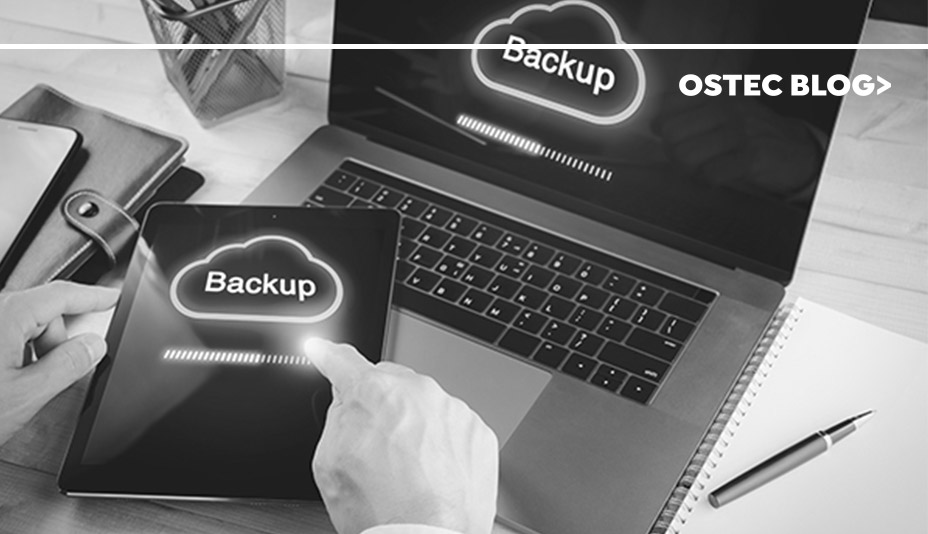This post is also available in: Português English Español
Maintaining the integrity of corporate data is one of the major challenges for technology analysts of companies, regardless of their size or segment. This is because the corporate data represents one of the main assets of the company, being essential for the continuity of the business.
This reality has meant that security and backup mechanisms have evolved rapidly in recent years, especially those focused on cloud concepts, used by companies to extend the principles of security and availability of corporate data, and which gradually replace the proprietary structures of servers allocated in the organizations.
This movement is evidenced in the research developed by Gartner Consulting, which indicates an increase in the number of virtual servers. According to the survey, the number of virtual servers is already surpassing the physic ones, reaching the mark of 70% in the next years. This is a natural market trend that seeks more efficiency, lower costs and, of course, more security, after all, contrary to what was once thought, in most cases, the cloud is a highly secure environment.
For this reason, cloud security solutions are growing more and more around the world. In 2015, a study by Frost & Sullivan Consulting, released by Estadão newspaper, indicated that cloud computing had grown 30% in Brazil and moved 1.1 billion dollars. In the world they were almost 160 billion dollars!
Continue reading this blog post and learn some advantages associated with the use of virtual environments, under the aspect of security, when purchased with structural datacenters hosted in the company itself.
Straight to the point! Cloud is safer than local datacenter?
This is one of the big questions when a company begins to take its first steps in search of greater security for its data, considering migration to the cloud. This is understandable, after all we tend to believe that information physically close, under our control, is always safer.
However, when it comes to information security, cloud environments often bring much more efficiency, economy, and protection. For a company’s information to be stored in a local datacenter, it requires a high investment in equipment and team, as well as a rigorous routine of checkouts and backups. In addition, elements stored in a local datacenter are more prone to losses due to hardware failure or damage from disasters, since they usually do not have logical and physical redundancy capabilities present in commercial datacenters.
When data is in the cloud, much of the management of the physical environment is delegated to third parties, including the security structure required to protect corporate data. Cloud services typically have many hiring possibilities, including formats with greater flexibility and involvement of staff engaged in the process of maintaining the environment. However, it is usually an option considered by companies with high technical maturity, including expertise in digital security.
In this sense, it is worth mentioning that one of the great benefits of adopting the cloud is associated with outsourcing responsibility for the security of corporate data. Necessarily, a third-party company with greater physical and technical resources to promote peace of mind for the contractor and his technology team.
The Advantages of Cloud Security
As we have already mentioned, one of the advantages is precisely having a team prepared and solutions always updated, since cloud providers invest heavily in their products and in their teams to maintain the excellence of the services offered.
In addition, cloud structures can be highly scalable, since the organization does not need to invest in local servers, purchase of new equipment, larger spaces, as well as contraction and training of employees.
While a small or medium-sized enterprise would need to have upfront costs to implement an internal datacenter, hiring a cloud structure allows for more economics and rapid deployment without hassles and bureaucracies. It is no wonder that as the number of startups, with products based on app’s, grows, so does the concept of cloud and those associated with its protection. A startup can grow rapidly in a short time and, therefore, it needs to have services that accompany this growth, without giving up the security.
Another advantage offered by some providers of these services are independent audit reports that can be developed by third parties to prove that internal processes are effective in managing security within your premises during data storage.
Cloud securityservices also use industry-recognized and recommended practices that are secured through certifications and compliance requirements. Guarantees associated with the availability of the service, time of service through the demands of support and disaster recovery are items agreed between suppliers and customers. That is, it specifies in the service contracts all the privacy and protection rules adopted, also allowing legal certainty for the contractor.
By adopting a cloud and all the security appliances associated with it, your organization can achieve high levels of protection, including frequent security testing. As discussed earlier, you will also have well-designed disaster recovery plans that will reduce risks related to equipment damage or physical failures, as well as benefit from ongoing upgrades of protection tools.
Added to this is a report from the Threat Report by Crowd Research Partners, which indicates that the main security flaws that companies commit are caused by the users themselves, with only 38% of organizations having a security policy with defined rules and responsibilities for data protection.
Therefore, it is clear that the migration of structures and services to the cloud is a path that has been traveling in stride. So, evaluate the characteristics of your business and if you choose to migrate from the corporate datacenter to the cloud, be highly critical in evaluating the security aspects that are offered by the service provider.
And remember, if you have any questions, talk to one of our experts.
This post is also available in: Português English Español









